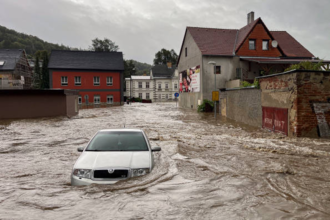What Does the Report Reveal?
A recently commissioned government study on sexual assault in Irish institutions managed by religious groups exposes a very concerning extent of this occurrence. The Education Minister has called the report—which revealed almost 2,400 claims at more than 300 institutions—truly disturbing. The revelation represents the first time the scope of such violence has been exposed.
What Are the Key Findings of the Report?
According to the study, 308 schools run by different religious orders registered 2,395 claims of sexual abuse. This covers establishments run by both old and modern religious groups. Emphasizing the hitherto unheard-of scope of these revelations, the Education Minister said, “The scale of abuse revealed in this report is truly shocking.” According to the inquiry, 884 people claimed to be abusers in 42 different religious organizations; some of these organizations still run schools now. The representative group for Catholic religious orders answered with a statement of great regret, accepting their responsibilities and conveying great sadness over the mistreatment that took place in these establishments.
How Will the Investigation Proceed
These disclosures have prompted the Irish cabinet to start an extensive statutory probe. A Commission of Investigation will conduct this investigation; a chair will be appointed, and comprehensive terms of reference will be put up. The report was published recently and primarily relied on information from schools and religious organizations. According to the study, over half of the 884 accused people are dead now. With 590 claims reported across 17 special schools, including 190 claimed abusers, it also highlighted a disproportionately high level of allegations in these establishments. The results imply a well-stained history of abuse spanning several decades.
What Is the Impact on Survivors?
The study presents a horrifying picture of the mistreatment survivors go through. The sexual assault happened in classrooms, dorms, sports facilities, and extracurricular events, among other places. Often coupled with “ferocious violence,” it added to the tremendous and long-lasting anguish victims endured. Many survivors underlined the significant influence on their lives by telling how their “childhood stopped the day the abuse started.”
From the 1960s to the 1990s, the survivor testimony gathered covers. Many survivors felt that the abuse was so pervasive that other staff members and the heads of religious organizations could not have missed it. “The power of the Catholic Church permeated their lives in every way,” the paper states. Believing they had nowhere to confide in—not even their parents—survivors felt alone. For many, the mistreatment has had extreme long-term effects, including addictions and mental health problems. In response, the study advised that religious organizations help support the survivors through a financial reparations plan. The Minister hailed the victims for their “extraordinary courage” in approaching and relating their stories. She also paid respect to the late Mark Ryan, who, throughout the 1970s, had boldly exposed his mistreatment at Blackrock College in Dublin. Ryan’s story and that of his brother David were highlighted in a 2022 documentary, significantly raising public awareness.
How Are Religious Orders and the Government Responding?
The weight of the report’s results has been accepted by the Association of Leaders of Missionaries and Religious in Ireland (AMRI). “We realize that we cannot know the depth of pain and suffering which survivors have endured and continue to endure,” they said. The company promised to “carefully review the recommendations and respond accordingly.”
The Minister of Education underlined that schools should be children’s havens rather than sites of dread. She attacked offenders for “breaking down” the young people under their supervision instead of helping and encouraging them. The government’s subsequent actions include assigning a chair for the Commission of Investigation and developing terms of reference to direct an extensive investigation.
Declaring, “The level and scale of the horrific abuse within schools revealed in the report’s pages are shocking, and there must be full accountability and justice for those abused,” the Tánaiste denounced the degree of the mistreatment the investigation showed. This demand for responsibility shows a more general will to solve the underlying problems the study exposes and guarantee that survivors get justice.








